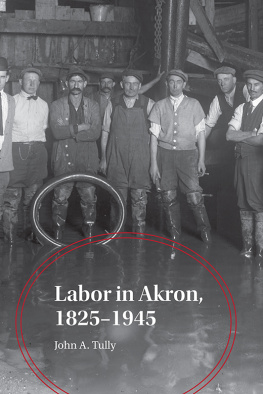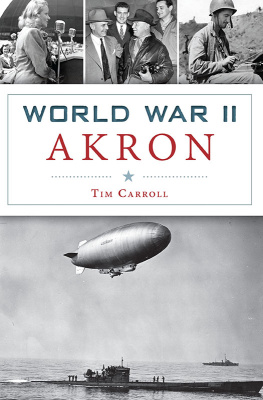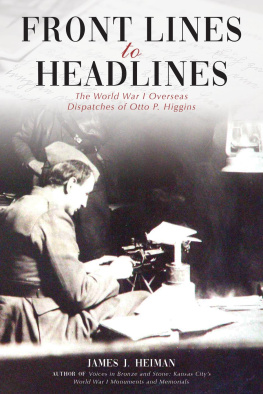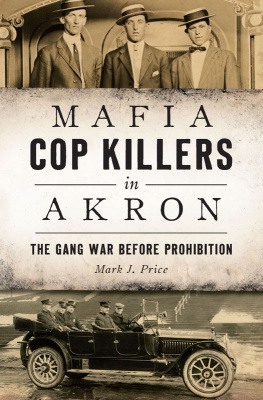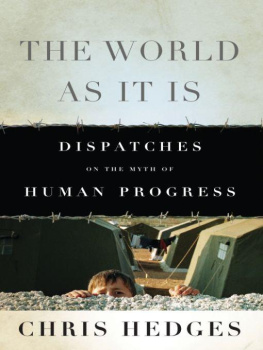Published by The History Press
Charleston, SC
www.historypress.net
Copyright 2009 by Christopher M. LaHurd
The History Press edition 2017
All rights reserved
Originally published as A Story of One: Walking the Path of a World War II Airman by Merriam Press in 2009.
First published 2017
e-book edition 2017
ISBN 978.1.43966.008.9
Library of Congress Control Number: 2016953506
print edition ISBN 978.0.73850.359.2
Notice: The information in this book is true and complete to the best of our knowledge. It is offered without guarantee on the part of the author or The History Press. The author and The History Press disclaim all liability in connection with the use of this book.
All rights reserved. No part of this book may be reproduced or transmitted in any form whatsoever without prior written permission from the publisher except in the case of brief quotations embodied in critical articles and reviews.
CONTENTS
Dedicated to my grandfather
Daniel Elias LaHurd
ACKNOWLEDGEMENTS
Thanks to my grandmother Madeline LaHurd; this heroines hardships and tireless efforts between 1939 and 1945 were fascinating and admirable. To Stanton Mike Rickey, Fred Hicks and the entire 483rd Bombardment Association for welcoming me with open arms. These brave men shaped our country into a stronger and richer nation. They are true heroes, and their stories will never be forgotten by me. To Patti Russo, for an excellent editing job; her thoughtful input and keen eye were extraordinary. To Ryan LaHurd and Jeff LaHurd for their opinions, suggestions and criticisms; I am extremely grateful for their help. To my parents, Denny and Karen; sister, Megan; and wife, Courtney, for their unremitting support; each one of them provided me with the boost that I needed to complete this book. To all of the LaHurds, for the tidbits of information that I learned from them in brief conversation; their stories helped me to congeal an accurate and hopefully interesting story.
FOREWORD
This narrative about Daniel LaHurds personal experiences during World War II is unique in that it recounts a story of one individual. This riveting memoir offers much insight into the extensive training process that transforms a raw recruit into a highly professional member of a wartime bomber aircrew. We learn of his feelings about the conflict and the interruption of peacetime family life that so many soldiers endured.
In one sense, LaHurds story is everymans in microcosm yet also unique in chronicling those experiences shared by so many others who fought the good fight and carried the war deep into the heartland of Nazi Germany. The Strategic Air War Campaign brought devastation to the enemy industrial and infrastructure complex and played a leading role in achieving Americas ultimate victory.
Can you imagine what it was like in World War II when the sky on a given day was filled with five hundred or even as many as one thousand B-17s and B-24s heading toward enemy targets? Add to that accompanying P-51, P-47 and P-38 fighter escorts, and you can envision an air armada on a massive scale such as the world has never seen, before or since.
The air war in Europe was a killing field. Luftwaffe fighter planes and enemy antiaircraft flak gunners exacted a heavy toll in defense of their homeland. The U.S. Army Air Forces in Europe lost a total of seven thousand heavy bombers destroyed in combat and nearly four thousand fighter planes. Over 200,000 American airmen flew in combat with the Eighth and Fifteenth Air Forces in Europe. The fatality rate among bomber aircrews exceeded that of the ground forces in Europe. The odds of successfully completing a tour of duty were estimated at one in three. The U.S. Air Force had more killed and wounded than the U.S. Marine Corps suffered in all the amphibious landings in the Pacific combined. Among these bomber crews, some 30,000 American airmen were killed in action, 14,000 wounded and 33,000 more were captured after parachuting from stricken aircraft or crash landing in enemy territory. They spent the rest of the war as POWs in Nazi prison camps.
Christopher LaHurd provides a detailed description of the path that most POWs took after capture. From all over Europe, they were initially sent to a central intelligence center at Dulag Luft near Frankfurt to endure solitary confinement and interrogation. Subsequently, they were transferred to a permanent stalag. The author gives a superb description of prison camp life. We learn of the camaraderie among men coping with bleak prospects yet determined to survive under arduous circumstances and their elation when liberated at wars end. Homecoming and resumption of peacetime activities were all the more rewarding as a result of their sharpened appreciation gained from the hardship and sacrifices they endured.
Stanton Michael Rickey, Lieutenant Colonel, USAF (Retired)
B-17 Pilot, 817th Squadron, 483rd Bombardment Group,
also shot down at Memmingen, Germany, on July 18, 1944
INTRODUCTION
The death of one man is a tragedy. The death of millions is a statistic.
Joseph Stalin
All too often we think of wars on a massive scale: tons of explosives, thousands of men, billions of dollars and death tolls in the thousands, hundreds of thousands or millions. While watching the news, reading the paper or listening to the radio, how many of us really think about the individual combatant behind the headline? What if you were fond of, or familiar with, just one soldier? What if you knew the story of that soldiers life? Would you have a different perspective on that war? Would a soldiers death still be a statistic, or would it be something more?
The Second World War began with a treaty gone wrong and a German blitzkrieg. After six years, the war concluded with atomic blasts over two Japanese cities. The greatest war known to mankind left a mosaic of cultural, political and militaristic changes after its conclusion in 1945. Ramifications of this war still linger today, from the transformation of international borders to the creation of the atomic age, the development of new jurisprudences and the implementation of NATO and the United Nations.
It is estimated that fifty-seven million human lives were lost during the war.* When using such large numbers, the scope becomes unfathomable; the ability to grasp that death toll becomes even more difficult. If one knew the individual story of every combatant and civilian who experienced World War II, fifty-seven million would be a terribly sad yet heroic statistic.
The individual soldier should never be forgotten in the sterile numbers attempting to measure a world war, for they were the catalyst of the outcome. Moreover, one would realize the courage, honor and strength of these soldiers, their families and all other civilians caught in the middle. My pursuit is to tell the story of one American airman and his daily activities during the war, with the hope that this information can be extrapolated, helping the reader grasp the sacrifices made by millions of people during the years 193945.
A twenty-three-three-year-old American boy stood in line to sign his name at the local recruiting station for the United States Army Air Force in February 1942.* Only two months previously, Japanese naval and air forces had attacked Pearl Harbor. Although the attack had occurred thousands of miles away, the boy from Akron, Ohio, felt directly affected. Saddened and enraged, he determined he would soon be an airman who would avenge the deaths of the Americans killed on December 7.




